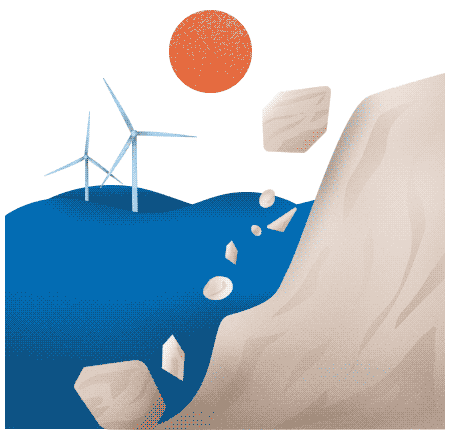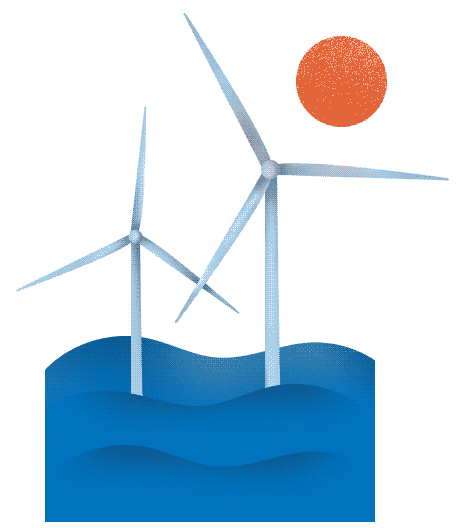protect marine and coastal areas
by promoting sustainable practices
The coastline, attractive for its natural spaces and varied uses (recreational, tourist, economic), inspires a strong attachment. However, growing human pressure on this vulnerable territory is creating conflicts of use, exacerbated by climate change.
To address this issue, Surfrider teams are working alongside users and stakeholders in the maritime sector to promote sustainable and respectful management of the coastline.

Coastlines, which act as natural barriers against storms, are home to exceptional biodiversity and provide a livelihood for millions of people (40% of the European population lives less than 50 kilometres from the coast).
These unique and precious land-sea interface areas are home to unique ecosystems and communities whose lives and livelihoods are closely dependent on the health of coastal and marine areas. They also have strong social characteristics and a cultural identity deeply rooted in their relationship with the sea.
However, these essential ecosystems are under double pressure.
On one hand, normal natural phenomena such as coastal erosion are now compounded by the impacts of climate change: extreme weather events, sea level rise, temperature increase and water acidification.
On the other hand, growing human pressure is intensifying on these limited territories, which are home to an ever-increasing number of economic activities and are undergoing rapid urbanisation, overexploitation of resources and various forms of pollution.
This combination weakens these ecosystems and further exposes coastal areas to erosion, flooding and extreme events, directly threatening the coastal communities that depend on them.
Faced with these challenges, a new approach is needed, based on respect for the natural dynamics of coastlines and moderation in our use of resources, accompanied by a reduction in human pressure, which must not exceed the limits of the planet, the ocean and our coastlines.
Surfrider Foundation Europe works to promote nature-based solutions, adaptive management that recognises the changing nature of these spaces, and transparent and inclusive territorial dialogue involving all stakeholders, including the citizens concerned. To meet these challenges, we are taking concrete action to anticipate and prevent climate impacts, rethink coastal and maritime activities, and collectively build the resilience of our coasts, with the aim of preserving both the health of ecosystems and the well-being of coastal communities.
Issues related to coastal development
and maritime activities in the face
of the climate crisis

COASTAL AND MARITIME ACTIVITIES

Coastal adaptation
Climate change transforms natural hazards into real coastal risks when human infrastructure is in their path. Faced with this reality, it is urgent to abandon the logic of ‘fighting against’ the sea that has prevailed in recent decades, and adopt an approach of ‘working with’ natural dynamics.
The impact of climate change
on coastlines in figures
28%
16%
70%
(approx.) of the energy consumed in Europe comes from fossil fuels
Going further
related publications
PDF File
Blue carbon credits – Between expectations and hazards : study on stakeholders’ perceptions on blue carbon credits
PDF File
Drilling is Killing – Manifesto
PDF File
Blue Manifesto – The roadmap to a healthy ocean in 2030
PDF File
Report on the European Citizen Consultation – Blue Up 2024
